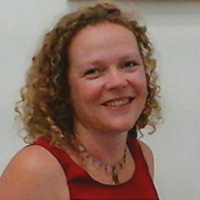
Lucinda Gardiner, Early Years Teacher and artist, achieved Early Years Teacher Status through Best Practice Network in 2014.
My experiences of working and travelling within Australasia and Asia over the past four years have allowed me many different experiences. These have included cooking and sailing on board tall ships designed to teach teenagers and adults how to sail, as well as supporting Aboriginal artists to produce their work using clay. After completing my travels, I realised that I wanted to pursue a new career that could combine my love for teaching art with helping people in the community that I was living in.
Having previously worked as an artist, teacher and health care worker in the UK, I could see the importance of engaging children with disabilities in a variety of early intervention programmes. I saw that the Early Years Foundation Stage provided children with more opportunities to learn in a freer and more child-directed way than Key Stage 1 or 2 would allow.
So, upon returning to the UK in 2013, I began to work at Art Raft Piglet nursery in Redland, Bristol. This turned out to be an inspiring time when I learnt that many subjects in the Early Years Framework, for example mathematics, language and communication, could be taught from an artistic perspective. I also learnt what amazing learners small children are and how much I enjoyed playing alongside them in their many explorations of nature, drawing, stories and songs.
My road to Early Years Teacher Status was definitely a steep learning curve and the support that was provided to me from my personal tutor was invaluable. I was very much aware that although I had many (transferable) skills to offer from my life experiences, I also had the least child care experience of all of my peers. This meant that I needed to spend longer than strictly necessary at all my placements and invest a great amount of time researching. I found that the Best Practice Network training days were extremely helpful as they allowed me to collaborate with peers and share ideas and experiences.
Since completing Early Years Teacher Status I have spent time working for Bristol-based nurseries and I am currently spending some time with friends and family in Australia exploring the possibilities of working with Aboriginals and Torres Strait Islanders (ATSI) in the future. This will take time as the ATSI cultures are very different from the Western world and people’s trust needs to be developed and nurtured.
I have recently been working alongside an amazing Aboriginal artist and have felt honoured to listen to her stories and see her artwork depicting the stolen generation and problems young children in her culture are facing today. When I return to the UK I will be in an excellent position to find a job where I can use all the skills and knowledge I’ve developed on my journey to Early Years Teacher Status. I will be able to use my training, my experience in the arts and now this invaluable experience of working with young children and families in such a different environment for the good of all children.